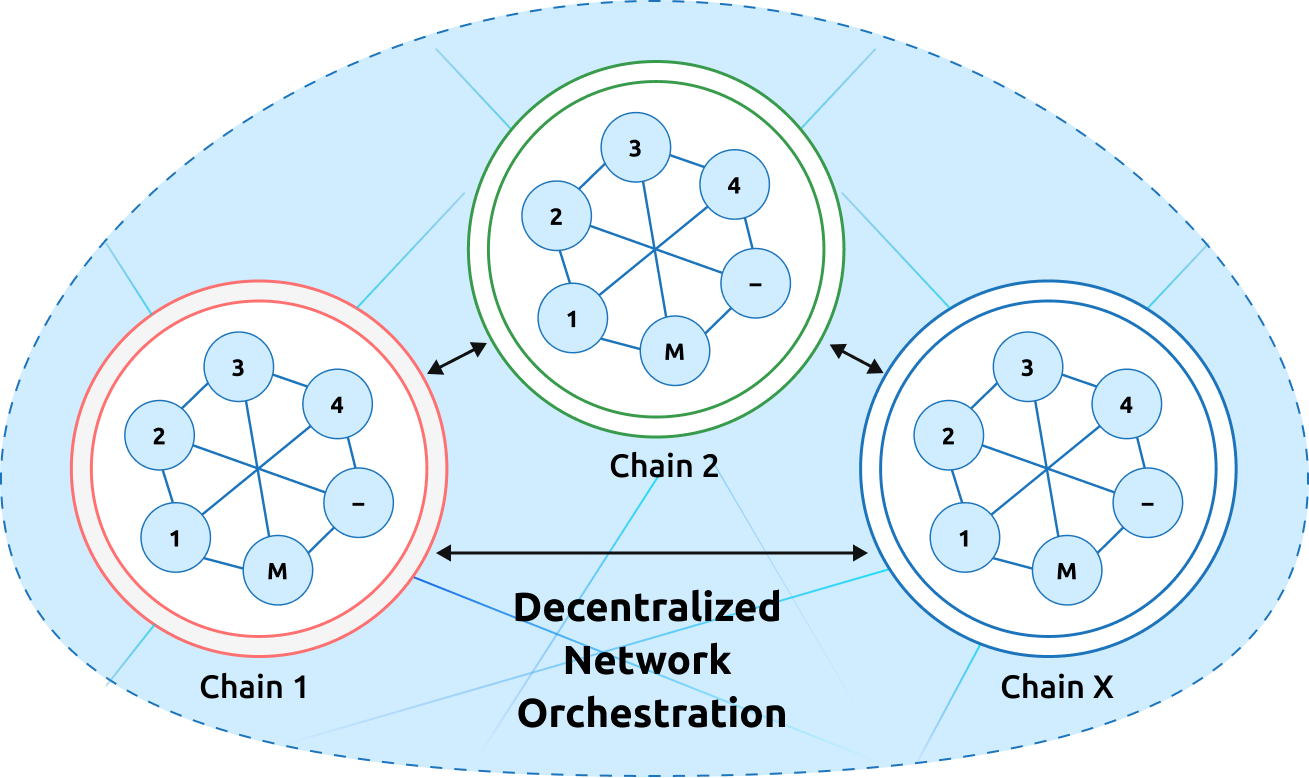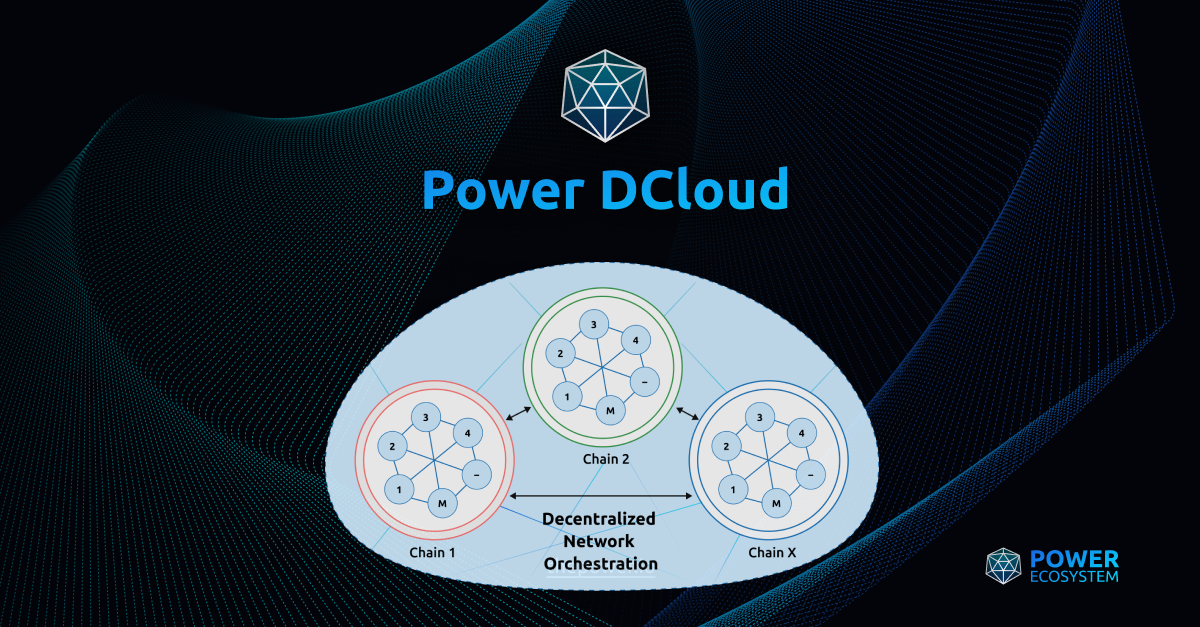In our previous article, we touched on how the Resonance consensus in Power DCloud works and how all nodes of a chain participate in block creation. Today, we would like to delve into how chains are formed, how nodes relate to chains, and how they can authenticate and find each other in the network.
The Concept of Semi-Independent Chains
Power DCloud’s infrastructure is composed of numerous semi-independent chains, each consisting of nodes. If these chains were entirely independent, we would end up with a multitude of separate blockchains, leading to interoperability issues, a common problem in the current industry. On the other hand, systems with dependent chains avoid this issue but introduce a bottleneck at the point of interconnection. All cross-chain operations have to pass through a central chain.
Power DCloud’s semi-independent chains interact directly with each other, eliminating the aforementioned bottleneck. However, this raises the question: what constitutes their partial dependence?
The Management Chain: The Heart of Decentralized Orchestration

All nodes within Power DCloud’s infrastructure are part of a specialized “management chain”. This chain doesn’t handle computation or storage of user transactions or data. Its sole purpose is to manage the “dependence” of nodes and chains within the platform. It is the only subsystem that binds all nodes into a unified infrastructure.
The management chain acts as a decentralized orchestration layer, coordinating the activities of all nodes in the network. It ensures that all nodes work together in harmony, maintaining the overall health and efficiency of the network.
The management chain is a virtual entity. Its database exists on all nodes, but the nodes themselves do not directly participate in its consensus. Instead of using the Resonance consensus, nodes employ a different consensus for the management chain, which will be discussed in future articles.
Cross-Chain Protocol: Facilitating Interactions Between Chains
Power DCloud’s unique architecture eliminates the need for a main chain. Instead, all chains interact with each other directly through a cross-chain protocol. This protocol enables transactions and smart contracts to operate across different chains, providing a seamless and secure interaction between chains. This direct interaction between chains removes the bottleneck often seen in traditional blockchain architectures, allowing for greater scalability and performance.
What Does the Management Chain Store?
The management chain stores the current list of all nodes in the project, their statuses, the chains they are currently attached to, parameters of the chains, and necessary address information of nodes. This address information is crucial for the Resonance consensus, as it operates based on the cooperation of nodes. Nodes within a chain must have connectivity with all other nodes in the chain, which is only possible when nodes can establish a connection, requiring knowledge of the connection address.
Addressing Challenges: The Need for a Flexible System
Addressing on the internet is quite a transient matter due to the potential change of IP addresses. For instance, this can occur when a node owner switches from one internet provider to another or changes their hosting provider. Therefore, in a constantly working system, a single permanent registration in the management chain correlating a node with a node address is insufficient. A flexible system for updating address information is necessary. To solve this problem, among others, Power DCloud has implemented an approach of tokenizing node ownership, which will be discussed in more detail in a future article.
Conclusion
The management chain is a pivotal component of Power DCloud’s infrastructure. It orchestrates the activities of all nodes, ensuring seamless and efficient operation of the network. By enabling direct interaction between chains and facilitating the equitable distribution of rewards, the management chain plays a key role in making Power DCloud a truly decentralized cloud infrastructure for the web3 world.






























